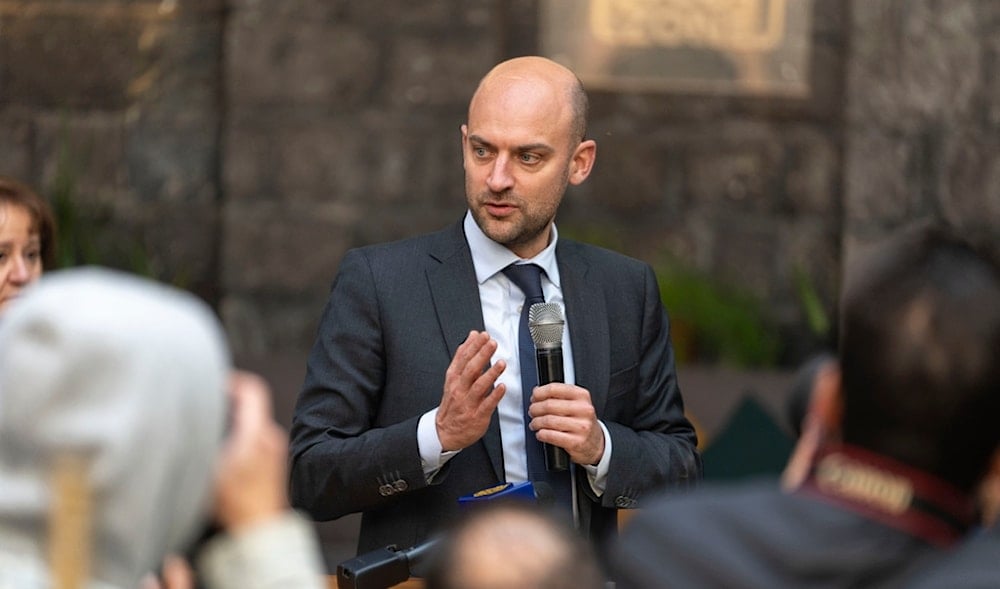France plans to respond to 'Algerian hostility' as ties fall out: FM
France intends to respond to what it coined as a hostile Algerian stance as ties take a turn for the worst.
-

French Foreign Minister Jean-Noel Barrot meets with representatives of civil society during an official visit, in Damascus, Syria, on January 3, 2025. (AP)
French President Emmanuel Macron and other officials will convene in the upcoming days to explore how to respond to what they deem as growing hostility from Algeria, Jean-Noël Barrot, France's foreign minister, said on Wednesday.
French-Algerian ties have seen complications and tensions for decades but degenerated in July when Macron provoked Algeria by endorsing a proposal for autonomy in the Western Sahara region under Moroccan control.
France sparked a furious response from the pro-independence Polisario Front when it declared that autonomy within Morocco was the "only" foundation for resolving the long-standing Western Sahara conflict.
Relations are not officially severed, but Paris claims Algiers is adopting policies that would erase any French economic presence in the country. Since the summer, trade has dropped by as much as 30% between both countries.
The economic, social, and security consequences could be detrimental to France, with officials stating that trade with Algeria is exceedingly significant, while at least 10% of the French population is tied to Algeria.
Meanwhile, Barrot told lawmakers that "The relationship between France and Algeria is not a bilateral relationship like any other, it is a relationship of deep intimacy," further accusing Algeria of taking a hostile stance.
Algeria imposes trade curbs on France over Sahara recognition
The Algerian Association of Banks and Financial Institutions, a governmental institution that functions on behalf of the government to supervise commerce, assembled local banks in November to communicate a new order banning all import and export transactions with France in reaction to its acknowledgment of Moroccan sovereignty over the Sahara.
Western Sahara is primarily controlled by Morocco, but the Polisario Front has been advocating for the territory's independence since before Spain, its colonial ruler, withdrew in 1975. The United Nations classifies it as a "non-autonomous territory."
Rabat, which governs around 80% of the territory, supports a plan for limited autonomy for Western Sahara under Moroccan sovereignty. In contrast, the Polisario Front is demanding a UN-supervised referendum on self-determination, a process that was intended to be established following the ceasefire in 1991 but has yet to be implemented.
The Algerian command was reportedly communicated verbally by an organization without the official power to enforce such a substantial action, and no written statement has been issued. Algeria-France commerce fell somewhat in the first half of 2024, following three years of stable expansion.
Algeria had already banned French enterprises from a wheat import tender in October, asking bidders not to include wheat of French provenance. This is similar to a decision made by Algerian authorities in 2022 when they banned commerce with Spain following Spanish Prime Minister Pedro Sanchez's support for Morocco's Sahara policy.
Read more: Algeria condemns France's 'disinformation' in deportation row

 3 Min Read
3 Min Read








